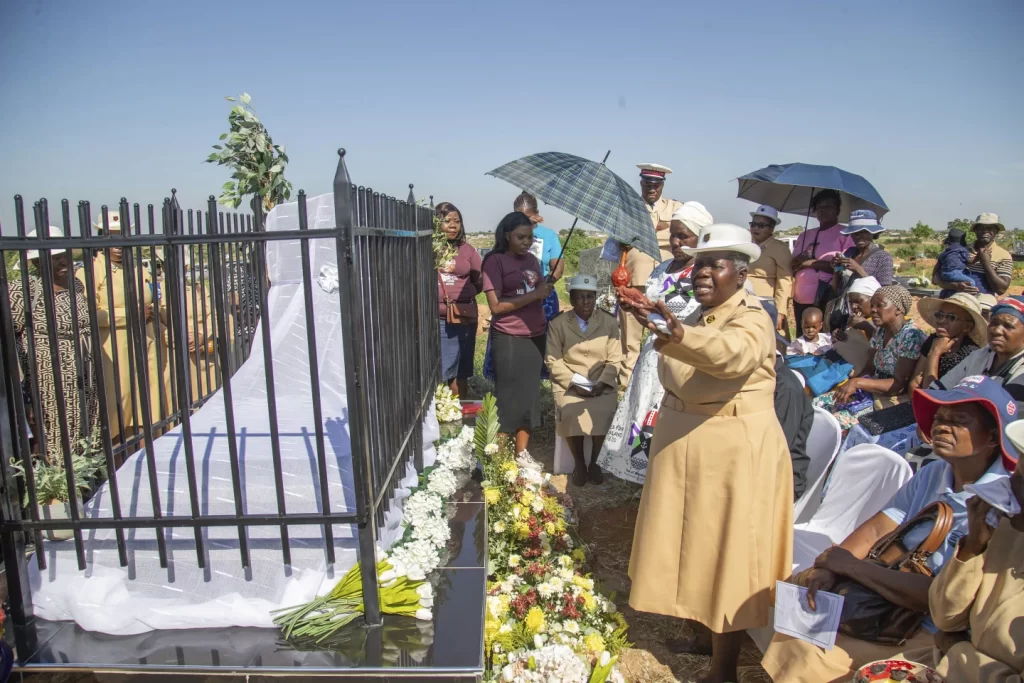By FARAI MUTSAKA
HARARE, Zimbabwe (AP) — Chipo Benhure started saving early for a holiday season to remember in Zimbabwe, but it wasn’t for a party or vacation. The highlight is a graveyard ceremony to unveil her late mother’s tombstone.
The generations-old rite has come to be associated with long holidays such as Christmas in the southern African nation, where the weakened economy leaves many people struggling to do their duty of honoring the dead.
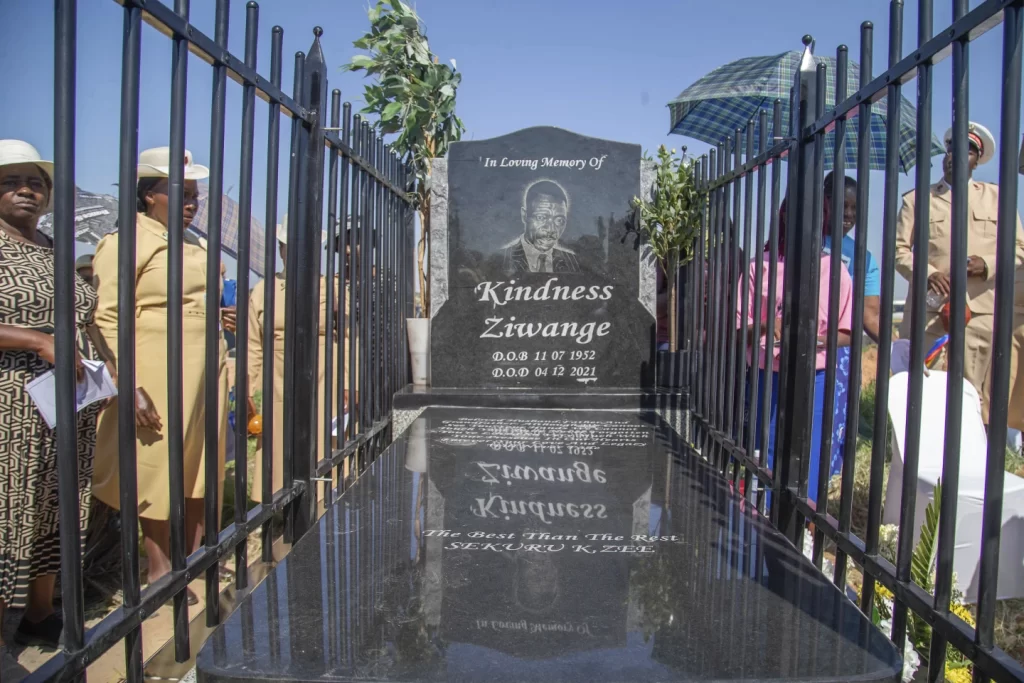
“I didn’t want to be found wanting come Christmastime, so I was putting aside a few dollars each month,” Benhure said, standing at a crowded and dusty ground on the outskirts of the capital, Harare. Workers used grinders and stone polishers to make tombstones. Others chiseled detailed portraits, referring to photos shared by loved ones.
Soon, a $450 black granite tombstone was added to the flower bouquets and sacks of groceries as Benhure and about a dozen relatives squashed together in a minibus traveling to their rural home for the ceremony. The cost represented more than twice the average monthly income for an urban household in Zimbabwe, which is about $200.
Zimbabweans traditionally use long holidays such as the Christmas season to hold often joyous graveyard rites that include song, dance, Christian prayers, or invitations for ancestral spirits to protect and guide the living.
Many believe such ceremonies can bring blessings — but neglect them too long and a curse could result. Until the ceremonies, graves are marked by simple metal signs or nothing at all.
In Zimbabwe’s urban areas this holiday season, household yards and other open spaces have been turned into makeshift tombstone manufacturing zones by people trying to eke out a living.
Prices range from $150 to $2,500, and some people pay in installments. Delivery vans and trucks are on standby for hire.
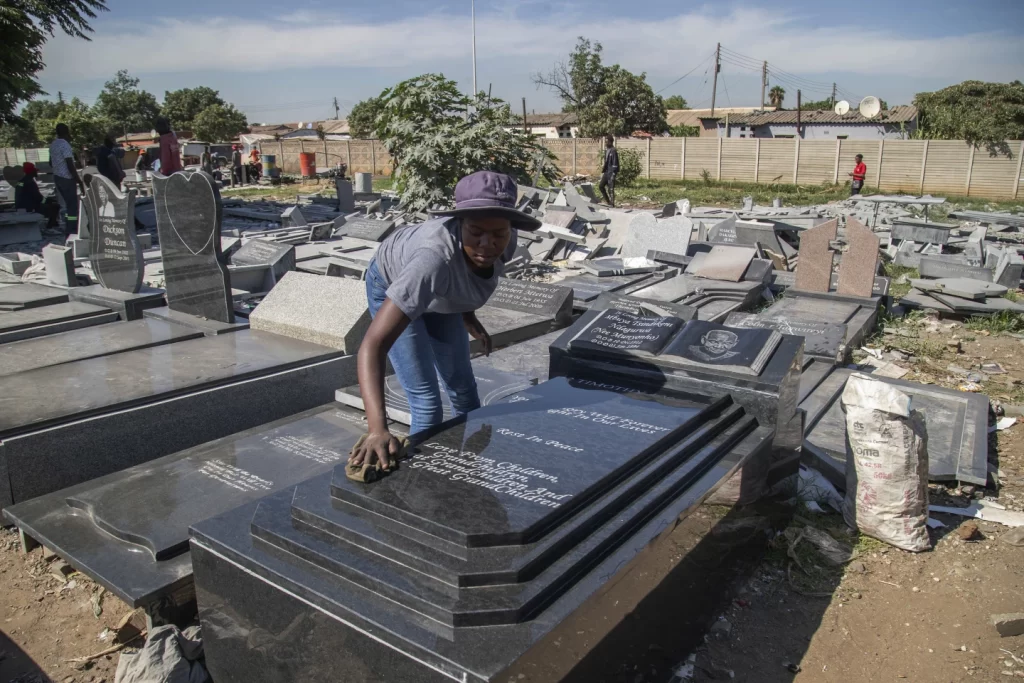
One tombstone provider, Tafadzwa Machokoto, attended to a stream of customers and called this his busiest time of year. The computer science graduate now employs almost 10 people for making or marketing tombstones.
“Our customers take tombstone unveiling very seriously. They would rather spend on the ceremony than on a Christmas bash. They need the blessings,” he said.
Machokoto recalled a businessman who once ordered 11 tombstones because his transport venture was struggling. The businessman said he constantly had dreams of his late father instructing him to spruce up the family cemetery.
“It rained just after the ceremony and everyone took it as a sign that the ancestors were now happy,” Machokoto said. “He even bought me a smartphone months later as a present, saying his business was now thriving.”
On a recent weekend at a cemetery on the outskirts of Harare, Zororo Memorial Park, several graves were covered with white cloth, ready for unveiling ceremonies.
The family of the late Kindness Ziwange said it had spent over $2,000 on the ceremony, including $900 for a tombstone. Afterward, close to 50 relatives, friends and neighbors feasted on fried potatoes, fried rice, grilled chicken, stewed beef, and vegetable salad.
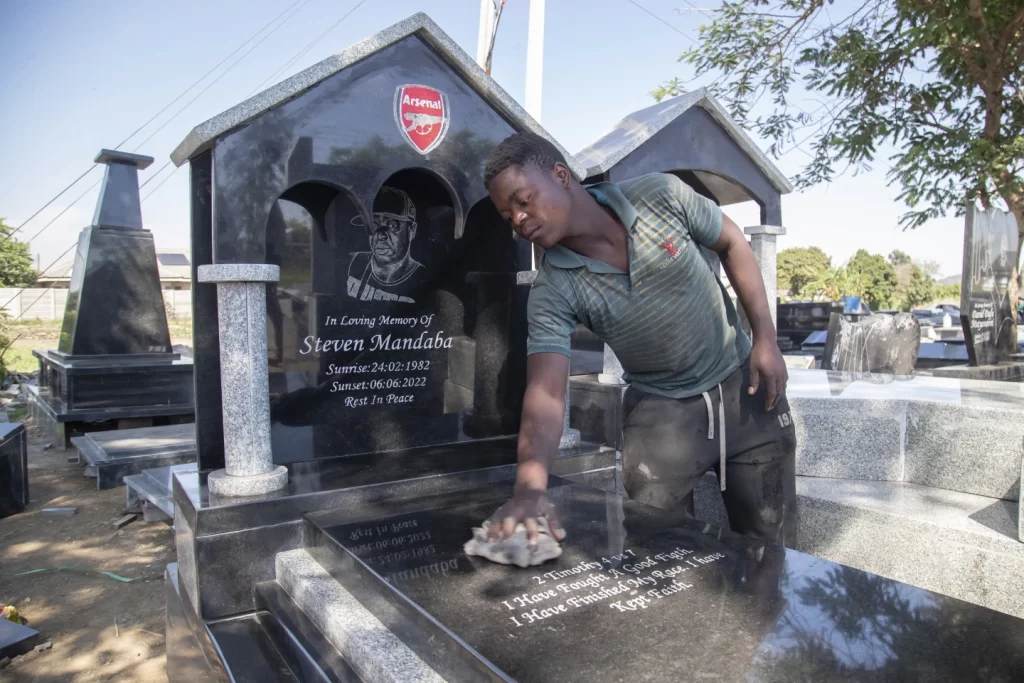
“We will lay low on Christmas Day. We already had our big day today as a family. Some traveled through the night for this event,” said a relative, Isabel Murindagomo.
While some in Zimbabwe regard the ceremony as an essentially Indigenous ritual associated with the ancestral cult and reactivation of the spirits, others view it as a Christian event to remember deceased relatives, said Ezra Chitando, a professor in the University of Zimbabwe’s religious studies department.
“The majority of people are hovering between the two positions. Some try to moderate by contributing financially to the process but do not attend the ceremony,” Chitando said, highlighting the religious complexity of local beliefs associated with the dead.
Although the majority of Zimbabweans profess to be Christian, experts say many combine the faith with traditional practices.
Benhure, with the tombstone for her late mother now in place, sees little difference in the end.
“Honoring the dead brings blessings to the living irrespective of one’s religion,” she said.
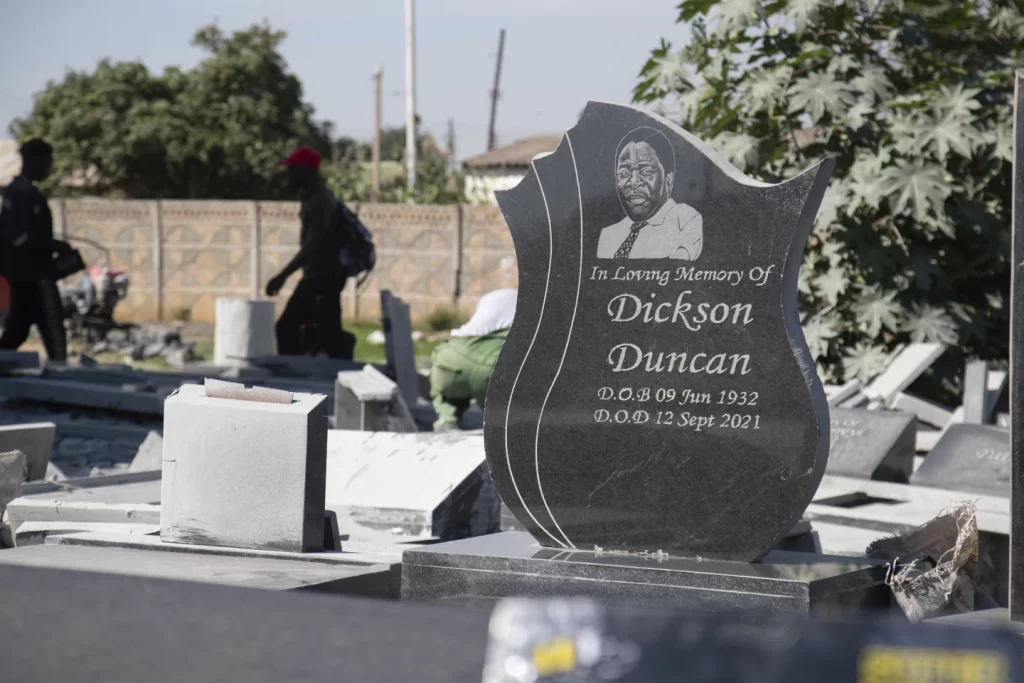
First published December 22, 2024


